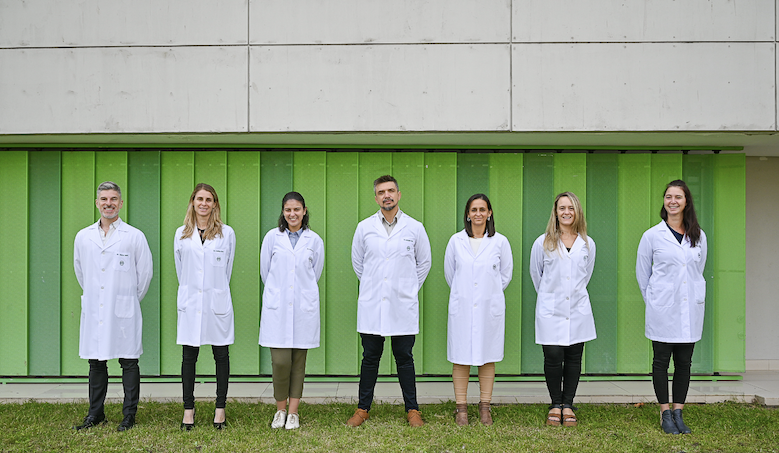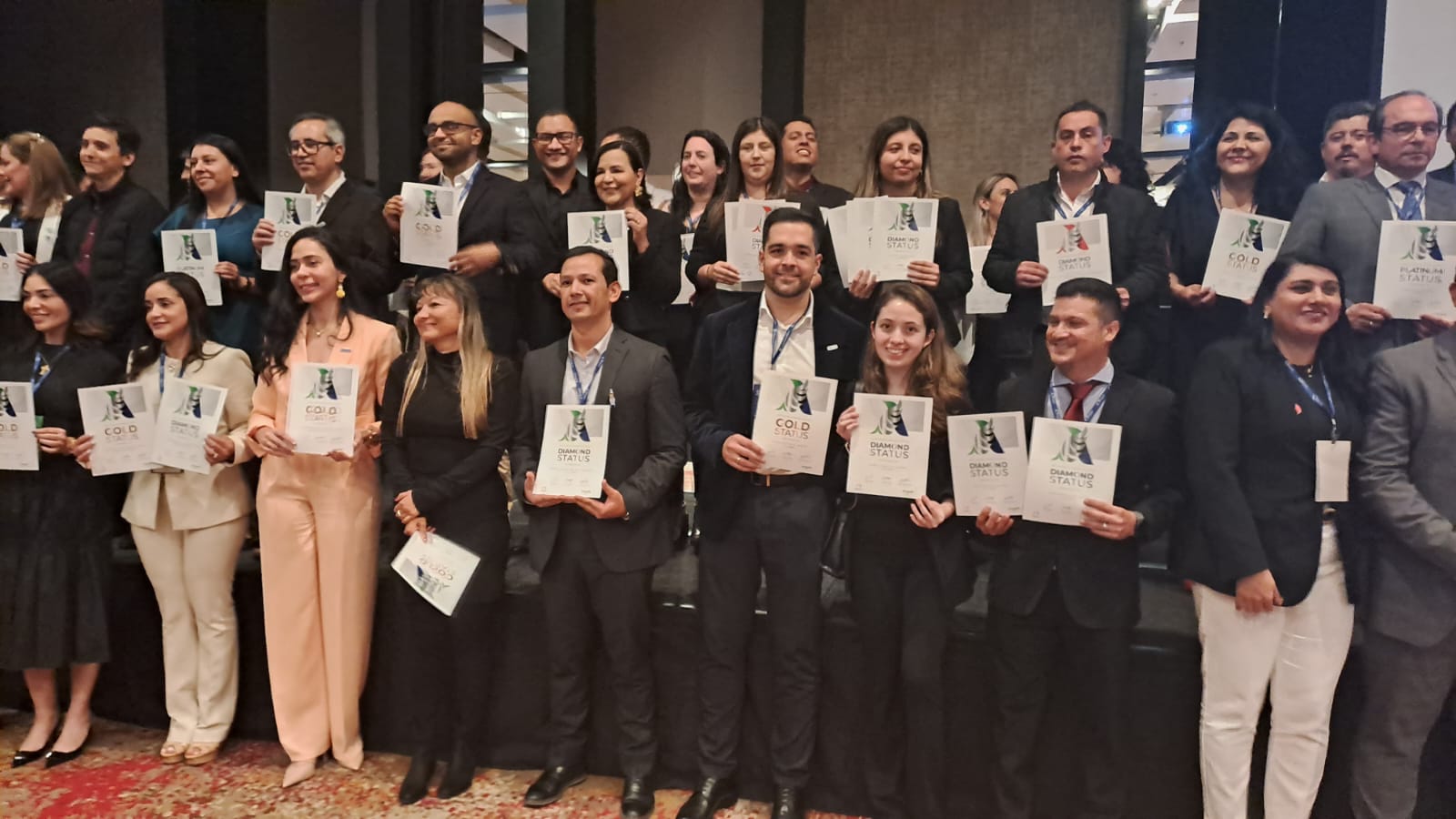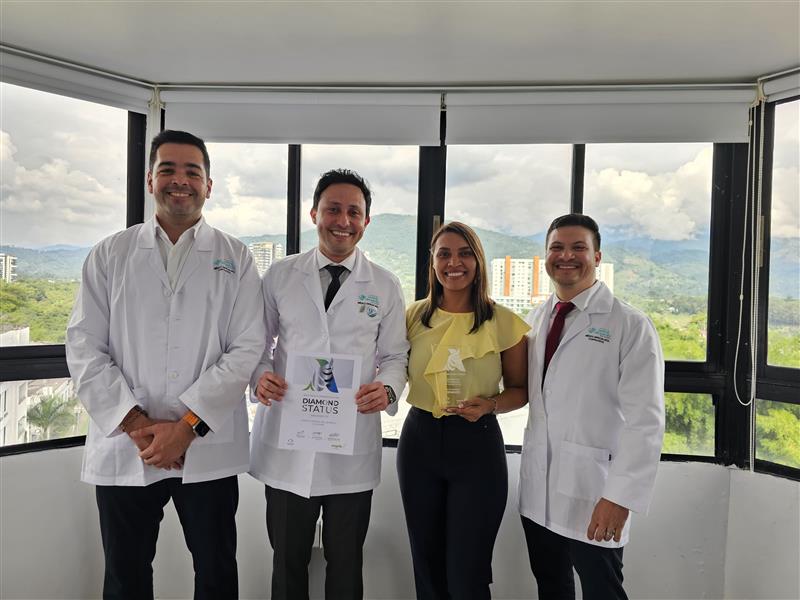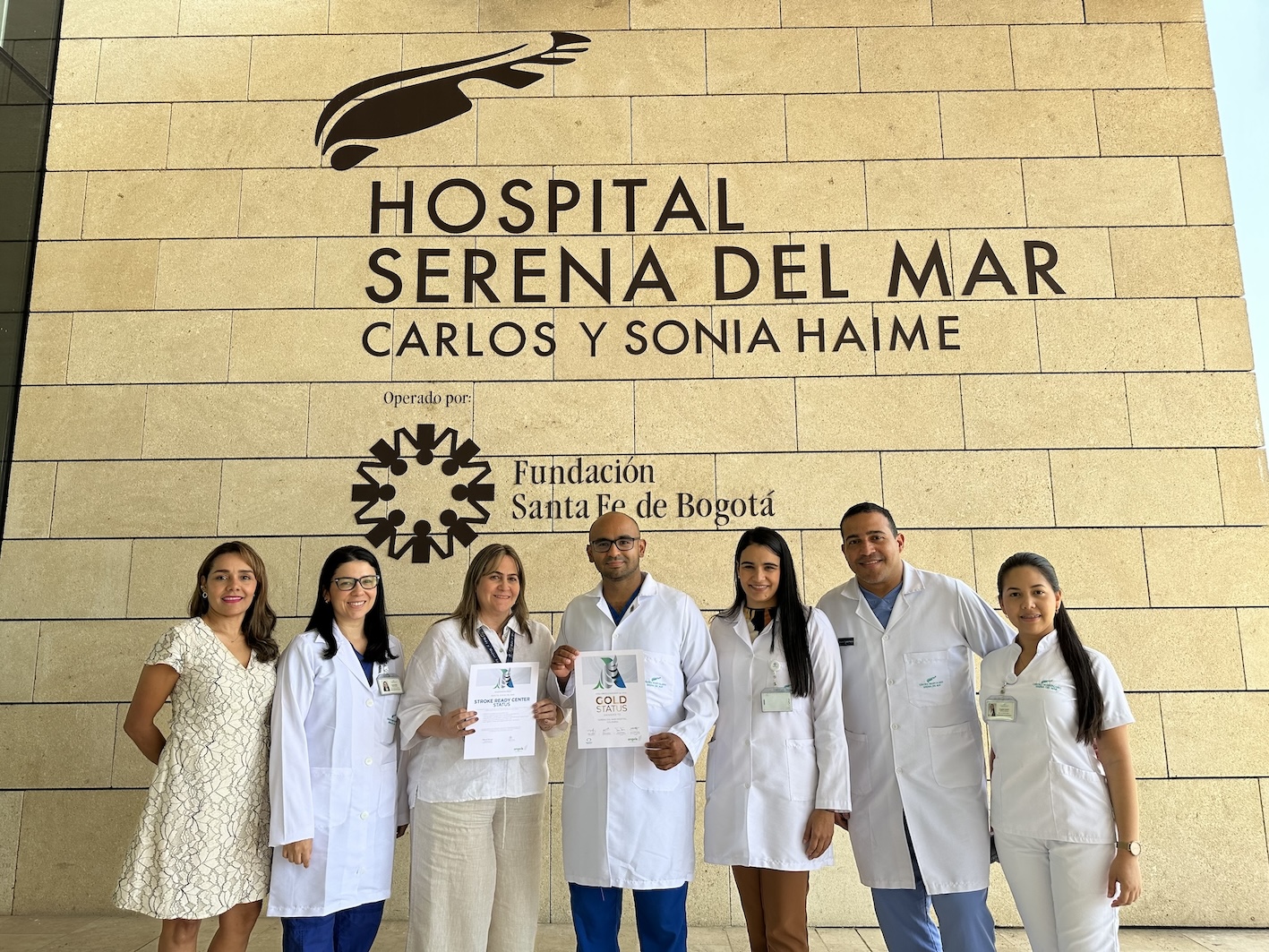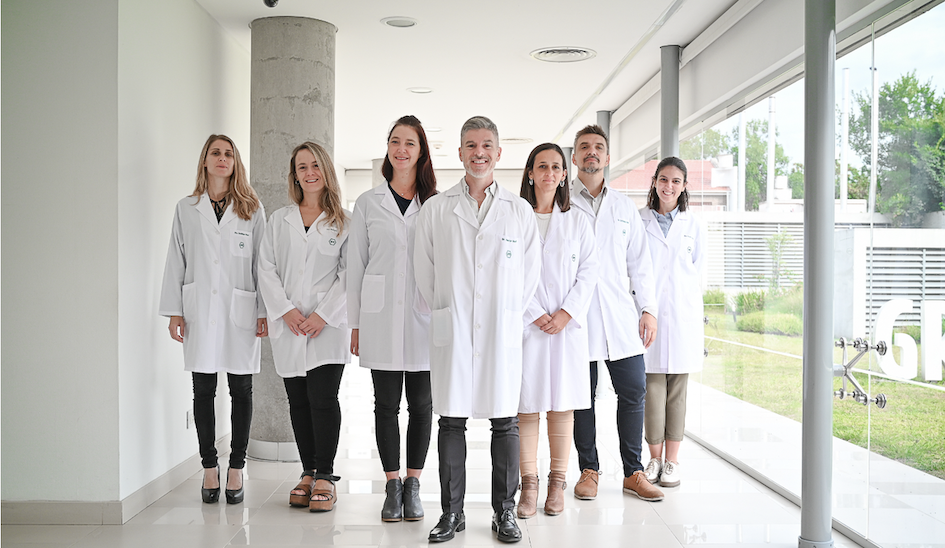
Sur 2 mai 2022, le Dr Ignacio Cigalini, cardiologue interventionnel et coordonnateur du code AMI à l’Hôpital Privado de Rosario en Argentine, effectue un remplacement transcathéter de valve aortique (TAVR) sur un homme de 63 ans.
Une procédure TAVR, dans laquelle un cathéter est utilisé pour fixer une valve de remplacement sur l’ancienne, présente plusieurs avantages par rapport à la chirurgie conventionnelle, mais comporte un risque élevé d’accident vasculaire cérébral aigu. Malgré toutes les précautions prises, le patient subit un accident vasculaire cérébral.
À 13 h 12 précisément, une enceinte de l’hôpital Privado de Rosario annonce Code Stroke.
Le temps de traitement sera une étape record de 10 minutes, au cours de laquelle le directeur de l'hôpital en neurologie, le Dr Guadalupe Maria Bruera, prendra plusieurs décisions qui changent la vie de ses patients.
AVC survenant à l’hôpital par rapport à survenue en communauté
Jusqu’à 17 % de tous les AVC surviennent pendant une hospitalisation en soins aigus chez des patients admis pour un autre diagnostic ou une autre procédure, selon un article sur l’accident vasculaire cérébral ischémique en milieu hospitalier publié par le Dr Ethan Cumbler de la Faculté de médecine de l’Université du Colorado, publié dans Neurohospitaliste en 2015. Entre la moitié et les deux tiers de ces patients sont périopératoires et périprocéduraux, les patients ayant subi une chirurgie cardiaque présentant le plus grand risque.
Les AVC à l’hôpital ont des résultats nettement moins bons que les AVC survenue et non seulement parce qu’ils surviennent chez des patients plus âgés, déjà malades et présentant des taux plus élevés de contre-indications médicales ou chirurgicales pour la thrombolyse. Les AVC à l’hôpital ont également tendance à avoir des retards plus longs dans l’évaluation et le traitement.
Une déclaration scientifique de février 2022 de l’American Heart Association cite des preuves que les patients victimes d’un accident vasculaire cérébral à l’hôpital ont un intervalle significativement plus long entre la reconnaissance des symptôme et la neuro-imagerie par rapport aux patients victimes d’accident vasculaire cérébral en service des urgences (4,5 heures contre 1,2 heure). Une étude du registre Get With The Guidelines a révélé que, par rapport à l’accident vasculaire cérébral survenue, le temps écoulé entre la reconnaissance de l’accident vasculaire cérébral et la thrombolyse était également plus long, à 81 minutes contre 60 minutes.
Les raisons pour cela comprennent que les symptômes de l’accident vasculaire cérébral soient attribués à tort à la maladie pour laquelle le patient a été hospitalisé, à l’effet de la sédation ou de l’anesthésie, ou aux effets secondaires des médicaments. Contrairement aux patients victimes d’accident vasculaire cérébral survenue communautaire, les victimes d’accident vasculaire cérébral à l’hôpital n’entrent pas non plus dans le système par le service des urgences avec sa culture d’urgence. Ils sont plutôt susceptibles d’être pris en charge par un personnel inexpérimenté dans le diagnostic de l’accident vasculaire cérébral et moins conscient de l’importance d’agir rapidement.
Dix minutes précieuses
Le citoyen de 63 ans de Rosario est l’un des heureux. Le Dr Cigalini, comme tout le monde à l’hôpital Privado de Rosario, assiste régulièrement à la formation sur le code accident vasculaire cérébral qui a lieu chaque mois, et est très conscient de l’importance d’une action immédiate en cas d’accident vasculaire cérébral. Lorsqu'il reconnaît que son patient manifeste une aphasie, il active Code AVC sans hésitation.
En route du laboratoire de cathétérisme vers la salle d’imagerie à une courte distance, une évaluation du NIHSS par le neurologue de garde, le Dr Guadalupe Bruera, obtient un score de 12. A l'aide d'une angiographie par résonance magnétique, il ne faut que deux minutes pour exclure un saignement et localiser l'occlusion dans le segment de M3 à l'artère cérébrale moyenne gauche. Conscient que le caillot ne peut pas être atteint par thrombectomie chirurgicale, le Dr Bruera prend la décision de thrombolyser. Elle administre le bolus elle-même. Le reste de la perfusion aura lieu dans l’USI où le patient restera pendant 60 minutes.
Le Dr Cigalini est resté présent tout au long de l'étude, fournissant des données essentielles qui éclairent la décision thérapeutique et la gestion de la communication avec la famille du patient.
L’ensemble du processus de l’activation du code accident vasculaire cérébral au traitement n’a pris que 10 minutes précieuses.
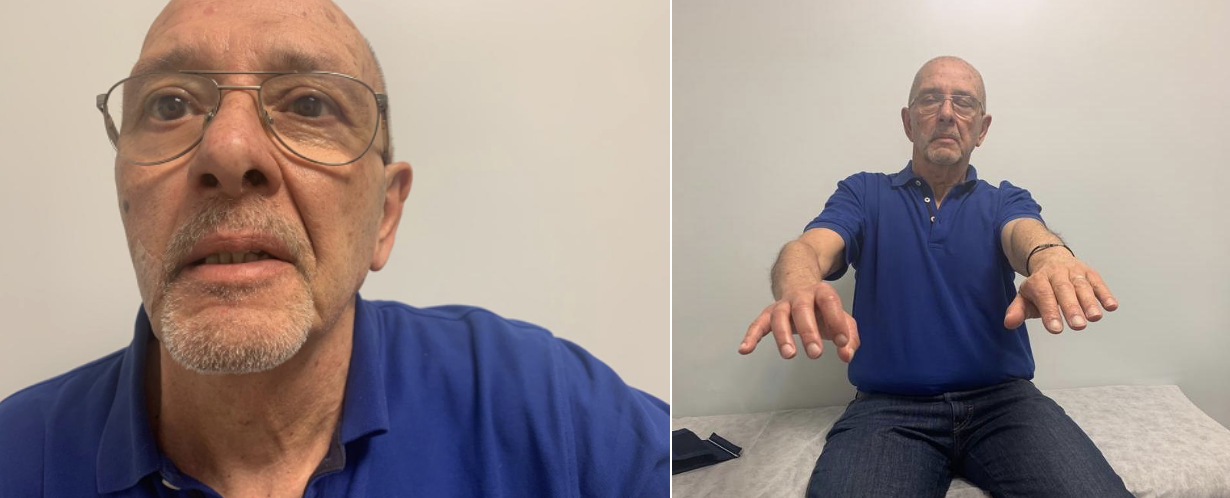
Le travail de chacun doit être respecté
L’hôpital Privado de Rosario admet environ 219 patients victimes d’accident vasculaire cérébral par an et a un délai d’attente avant la prise en charge de 40 minutes pour un accident vasculaire cérébral survenue. Son délai moyen jusqu’au traitement de l’accident vasculaire cérébral à l’hôpital est supérieur à la tendance à 35 minutes. L’explication réside dans un protocole de code accident vasculaire cérébral clairement structuré et un travail d’équipe transdisciplinaire, explique le Dr Bruera. De manière cruciale pour la prise en charge optimale de l’accident vasculaire cérébral à l’hôpital, une formation régulière au code de l’accident vasculaire cérébral implique le personnel de tous les services de l’hôpital. Par conséquent, il y a une grande conscience de la nécessité d'agir avec rapidité lorsqu'un accident vasculaire cérébral est suspecté, et tout le monde connaît l'exercice lorsque le Code AVC est annoncé.
Un parcours patient très organisé minimise les retards de traitement, et les simulations facilitées par l’Initiative Angels aident à identifier les opportunités d’amélioration, mais le travail d’équipe est le facteur décisif et une hiérarchie aplatie aide à mobiliser tout le monde dans l’équipe.
"L'un des aspects fondamentaux de l'accident vasculaire cérébral est la transdisciplinarité", dit le Dr Bruera. "Dix à 15 professionnels de la santé participent à un code d'accident vasculaire cérébral, ainsi que le personnel soins infirmiers et administratif.
"Chaque membre de cette équipe doit se sentir responsabilisé – quelque chose qui ne vient pas seulement de la formation mais aussi de l'exemple. Bien qu'il y ait une personne qui coordonne le code accident vasculaire cérébral, le travail de chacun doit être respecté.
"Une équipe spécialiste de l’accident vasculaire cérébral prospère est construite sur le principe que la construction des connaissances est toujours collective. Rien ne peut être appris individuellement".
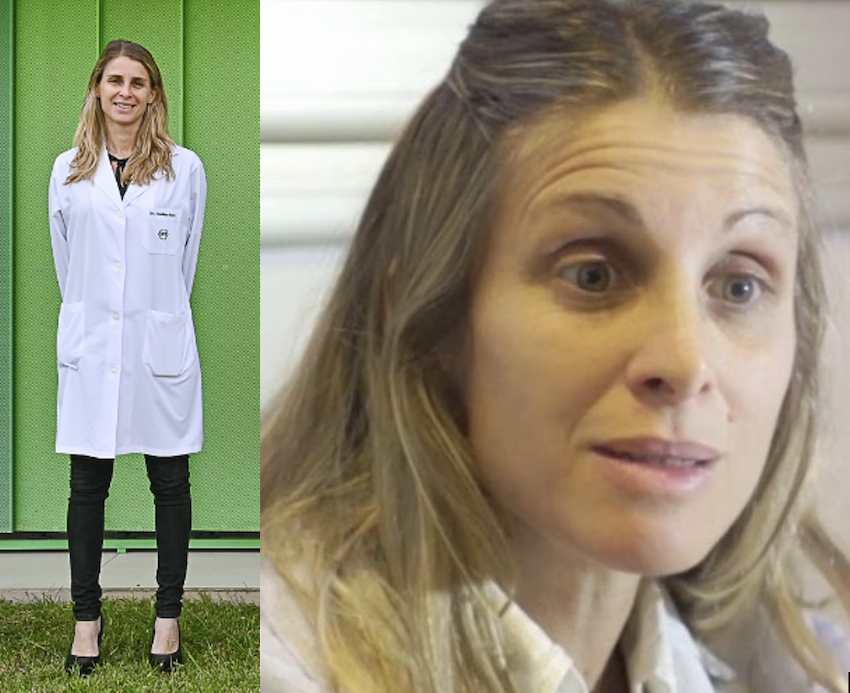
La qualité fondamentale des êtres humains
Il est évident que le "miracle" de 10 minutes de Rosario n'est qu'en partie le résultat de l'organisation et de la formation. La réussite de cette équipe spécialiste de l’accident vasculaire cérébral est également ancrée dans les principes, et les principes qui régissent la prise en charge de l’accident vasculaire cérébral à la HPR sont indissociables des valeurs personnelles du Dr Bruera.
Elle se décrit comme "une personne qui essaie d'apprendre quotidiennement" et son hôpital comme un environnement qui facilite l'apprentissage : "J'apprends beaucoup des patients, des infirmières, des secrétaires et des collègues".
La qualité de la médecine pratiquée dans son hôpital, et par ses collègues en cardiologie en particulier, est l’une des raisons pour lesquelles elle a choisi Rosario plutôt que des opportunités de construire sa carrière ailleurs.
Elle dit "J'aime beaucoup mon pays, même avec tous ses défauts, et en particulier la ville de Rosario".
L’amour du pays et l’apprentissage sont un héritage familial. Le Dr Bruera et ses frères ont été élevés par une mère psychologue et un père neurologue qui sont tous deux des enseignants. Elle dit : "J'ai grandi dans une famille dont les valeurs fondamentales reflétaient la qualité fondamentale des êtres humains, comme le soutien et le respect des autres."
Ces valeurs trouvent une expression dans le programme sur l’accident vasculaire cérébral à l’Hôpital Privado de Rosario et, avec un parcours organisé et une prise de décision fractionnée en deux, peuvent parfois fournir un miracle en 10 minutes.
